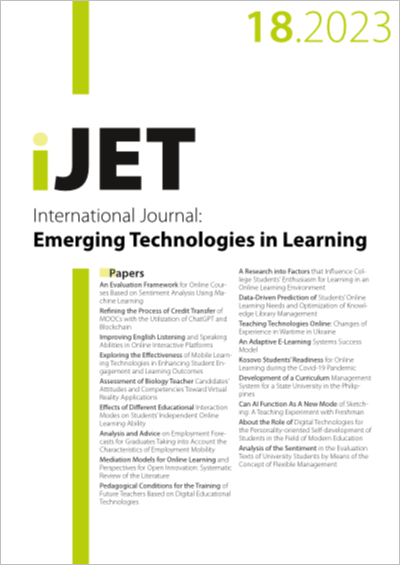Pedagogical Conditions for the Training of Future Teachers Based on Digital Educational Technologies
DOI:
https://doi.org/10.3991/ijet.v18i18.43209Keywords:
Digital education, pedagogical conditions, teacher candidates, technologyAbstract
This study aimed to assess the pedagogical frameworks for developing future teachers using digital education technology. The mixed-methods design, which combines quantitative and qualitative approaches, was employed to develop this study. Three hundred seventeen teacher candidates who are enrolled at several universities in Kazakhstan make up the research team. The researchers created a semi-structured interview form and an attitude scale toward digital technology in order to gather research data. The data was determined to be regularly distributed. Therefore, descriptive statistics, the T-test, and one-factor analysis of variance (ANOVA) tests were employed to assess them. The descriptive analysis method was applied to study the research’s qualitative data. The study’s findings showed that most pre-service teachers who took part in it thought that teacher training programs based on digital technology had adequate pedagogical conditions. Based on its results, the study offers recommendations.
Downloads
Published
How to Cite
Issue
Section
License
Copyright (c) 2023 Aizhan Baltynova, Kalkeeva Kamariyash, Tolkyn Muzdbaeva, Yerzhan Bolat, Korlan Beleukhanova, Didar Zharikova

This work is licensed under a Creative Commons Attribution 4.0 International License.



